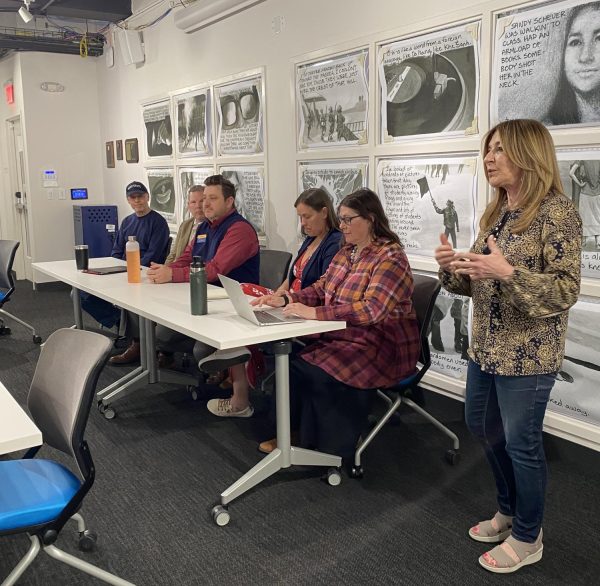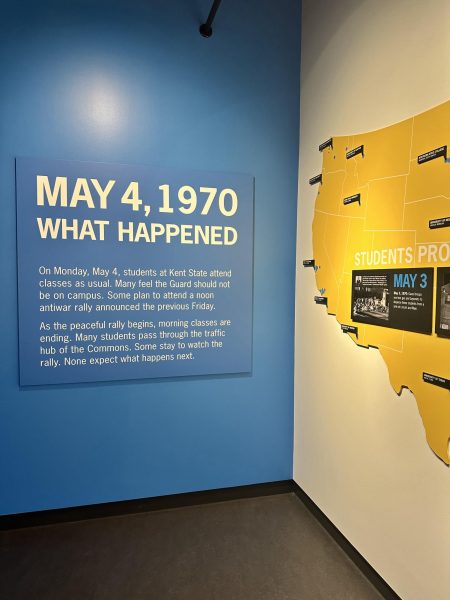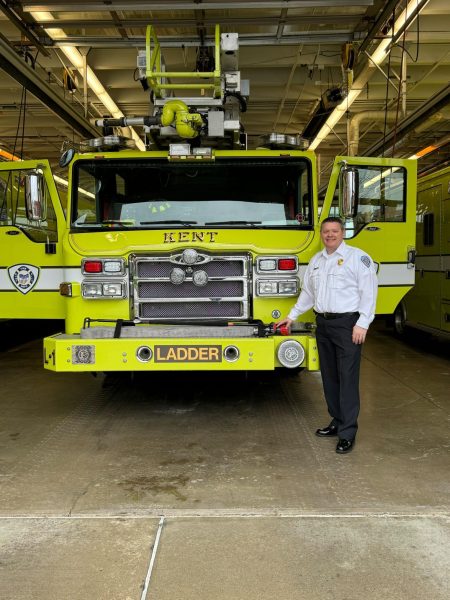As economy falls, numbers of needy animals rise
October 14, 2008
PAPL shelter’s costs outweigh donations, its workers claim
The Portage Animal Protective League has operated with animals at half capacity for about two years, and due to the continued economic struggles and the foreclosure crisis, it recently had to turn to the county in hopes of lightening its financial load.
The Ohio Revised Code says that the board of county commissioners can pay a monthly salary to the county humane officer from the county’s general revenue funds that the board deems just and reasonable.
Sheila Vandergriff, executive director of the non-profit PAPL, said the increased number of calls the officer has received made this something the league needed to request.
The PAPL is a non-profit shelter that relies entirely on donations, and Vandergriff said it has paid for the humane officer’s salary for years, as well as the transportation and supply costs. She added that Portage County did award money that paid a portion of the humane officer’s salary for 2008, and the league is waiting to see if the county can pay the added costs in care for the animals.
Portage County Commissioner Chris Smeiles said the county gives a minimum amount of money annually in a stipend to the PAPL. He added that the county agreed to give additional funding for the humane officer to match reality.
The Portage County humane officer brings in 30 percent of all domestic animals the league houses, and the number of animals the officer has seen in the field has more than doubled during the past two years, Vandergriff said.
As of the end of August 2008, the number of animals seen in the field by the humane officer, including livestock, was more than 1,300. To date, this year the number of calls received is 568.
“The shelter is holding its own,” Vandergriff said, “but costs still outweigh donations.”
The league is making changes, such as where food is bought and the type of cleaning supplies used, in order to cut costs, but never at the expense of the animals’ welfare, she said.
“With the economy being as tight as it is, people’s finances and investments are being affected, and we are seeing a drop-off in donations,” she said. “People who typically give are cutting back, but they are doing the best they can. We are doing the best we can.”
Last spring the league got hit hard financially with an incident involving five dead horses and several others that had been neglected found at the Never Rest Ranch, a boarding facility in Brimfield. This winter season looks to be just as bleak, Vandergriff said.
“The prediction that it will be just as bad, if not worse than last year,” she said. “The economy is tightening, people are losing their jobs, and cost of hay is increasing exponentially.”
Vandergriff said the league is educating owners on managing the costs of horses and other livestock because another incident like that in Brimfield would mean trouble for the league.
“It would essentially wipe the shelter out if we had another large horse case,” she said fearfully.
Smeiles said the commissioners have spoken with other cities, townships and villages in the county about assisting the PAPL with additional funds.
Deliberation on the county budget for 2009 is underway, but is already in the red, he explained. “We will try to help them out,” he said of the PAPL. “By working together we can achieve more.”
The foreclosure crisis also brings in an enormous number of domestic animals to the league, particularly cats.
During a single day in January the league received three calls, all the result of foreclosures. The first involved 30 cats, the second involved 11 and the third involved 50 cats at one residence.
“The owner was moving out, and people from the bank were coming to close the house,” Vandergriff explained of the ladder situation. “She told them she had five cats, well, she had five different colored cats. There was not one litter box.”
Because of situations like these, the shelter rarely has available space for cats. In turn, there is a waiting list for owners who are struggling to finance their pet, hoping to turn their animal over to the league. So far this year, the league has had to turn away more than 500 cats.
Contact public affairs reporter Alyssa Sparacino at [email protected].
























